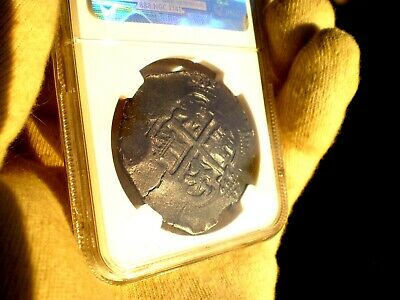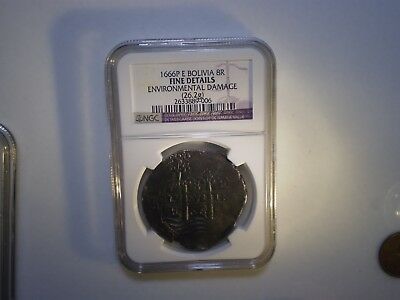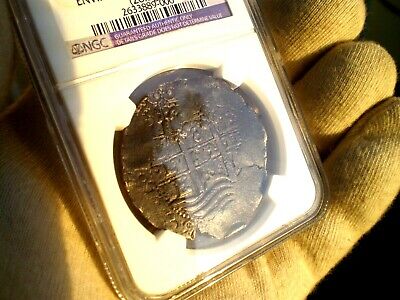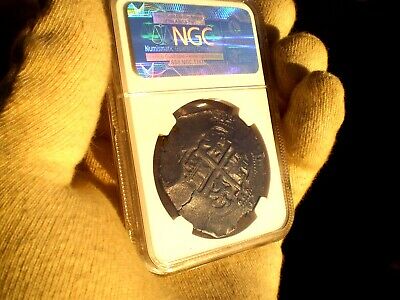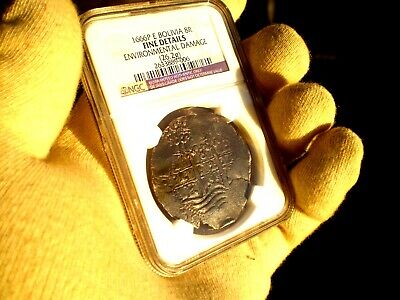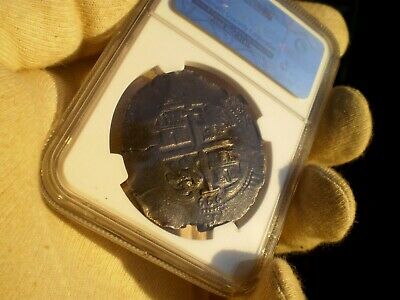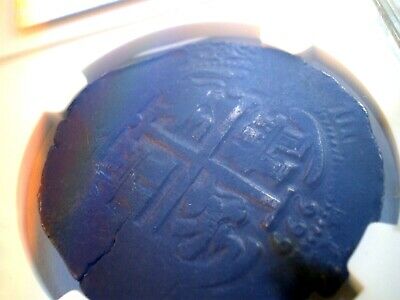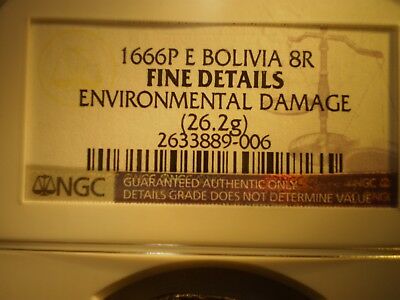-40%
🔥1666 BOLIVIA 8 REALES 🔥 SHIPWRECK SILVER COB 🔥COLONIAL COIN🔥
$ 949.87
- Description
- Size Guide
Description
1666BOLIVIA
8 REALES
SILVER
COB
🔥
Devil's Forbidden Coin
🔥
On 11 July 1668 Henry Morgan anchored short of Porto Bello and transferred his men to 23 canoes, which they paddled to within three miles (4.8 km) of the target. They landed and approached the first castle from the landward side, where they arrived half an hour before dawn. They took the three castles and the town quickly.
[33]
[34]
The privateers lost 18 men, with a further 32 wounded; Zahedieh considers the action at Porto Bello displayed a "clever cunning and expert timing which marked ... [Morgan's] brilliance as a military commander".
[2]
Exquemelin wrote that in order to take the third castle, Morgan ordered the construction of ladders wide enough for three men to climb abreast; when they were completed he "commanded all the religious men and women whom he had taken prisoners to fix them against the walls of the castle ... these were forced, at the head of the companies to raise and apply them to the walls ... Thus many of the religious men and nuns were killed".
[35]
Terry Breverton, in his biography of Morgan, writes that when a translation of Exquemelin's book was published in England, Morgan sued for
libel
and won. The passage about the use of nuns and monks as a
human shield
was retracted from subsequent publications in England.
[36]
Morgan with a prisoner
Morgan and his men remained in Porto Bello for a month. He wrote to Don Agustín, the acting president of Panama, to demand a ransom for the city of 350,000 reales.
[n 9]
As they stripped the city of its wealth it is probable that torture was used on the residents to uncover hidden caches of money and jewels. Zahedieh records that there were no first-hand reports from witnesses that confirmed Exquemelin's claim of widespread rape and debauchery.
[2]
After an attempt by Don Agustín to recapture the city by force – his army of 800 soldiers was repelled by the privateers – he negotiated a ransom of 100,000 reales.
[38]
Following the ransom and the plunder of the city, Morgan returned to Port Royal, with between £70,000 and £100,000
PIEDMONT SHIPWRECK
Piedmont
(“Lyme Bay wreck”), sunk in 1795 in Lyme Bay, south of England
One of a huge fleet of 300 ships on their way to the West Indies to suppress a French uprising, the
Piedmont
was forced into Lyme Bay during a hurricane on November 18, 1795, that scattered and sank the ships of the fleet all along the Dorset coast. The
Piedmont
and five other ships (
Aeolus
,
Catherine
,
Golden Grove
,
Thomas
and
Venus
) broke apart on Chesil Beach and came to be known collectively as the “Lyme Bay wrecks.” An estimated 1,000 men lost their lives in the disaster, including well over a hundred from the
Piedmont
alone.
In the early 1980s, the wrecks were salvaged by divers Selwyn Williams and Les and Julia C. Kent, who discovered many silver cobs of the late 1600s on the wrecksite of the
Piedmont
. It is presumed that the coins had been captured or recovered from a 17
th
-century wreck and stored in the vaults of the Bank of England for about a century before being transported and subsequently lost again. These coins are usually recognizable by their uniformly dark-gray coloration, a bit sea-worn but not overly corroded. A significant group of extremely rare Colombian silver cobs from the
Piedmont
(but not identified as such) was offered at auction in 1995.
THIS COIN WAS USED AS LEGAL TENDER IN USA UNTIL 1857
!!!!!!
HAPPY BIDDING AND GOOD LUCK
!!!!!!
